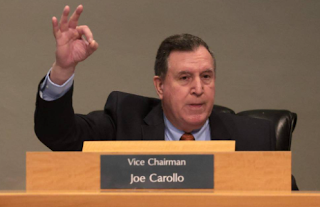Commission meeting summary
Friday’s special hearing on
Miami’s commission district boundaries revealed key information for the first
time. Miami’s previously split neighborhoods could be reunified by any of
several alternative plans, testified mapping consultant Miguel DeGrandy.
Miami-Dade Supervisor of Elections Christine White was cited as saying there
was no ‘hard and fast’ requirement to redistrict quickly; waiting ‘would be
well worth it’. Citizens from throughout Miami asked the commissioners to
take advantage of the rare opportunity the census redistricting presented to
strengthen neighborhoods and prepare for Miami’s growth, while compensating for
the high growth rates in the downtown and mid-town areas of the city.
Four of the five commissioners,
led by Commissioners Carollo and Reyes, refused to consider the alternative
proposals and pushed for the earliest possible changes in the district
boundaries, March 11.
Currently about ten Miami
neighborhoods have been split by previous districting exercises. North
and South Shenandoah straddle Districts 3 and 4. Flagami is split between
D1 and D4. The Pines/Douglas Park neighborhood includes both D2 and
D4. Others include Wynnwood, Morningside and the area around Jackson
Memorial Hospital. The proposal approved by the commission vote would add
Coconut Grove to that list and uniquely split that oldest Miami neighborhood
between three different commissioners.
96 Grove residents testified
against the proposal, declaring that all Miami neighborhoods deserved coherent
representation. Suggestions that the commissioners pause to examine
inclusive alternatives were explicitly rejected during the preceding special
session of 2/7—when the fastest possible timetable was adopted—and again during
the 2/25 meeting.
Mr DeGrandy also testified that
he had held multiple conversations with each of the commissioners and had
received from each commissioner specific guidance when creating the boundaries
proposed. Both Commissioner Russell and independent citizen groups
presented alternative district maps that reunited split neighborhoods and
bettered the numeric criteria by which districts are evaluated. The
city’s approved map presented the most divergent populations of the four
alternative maps.
The second and final vote on new
district maps is scheduled for Friday, 11 March.


Comments
Post a Comment